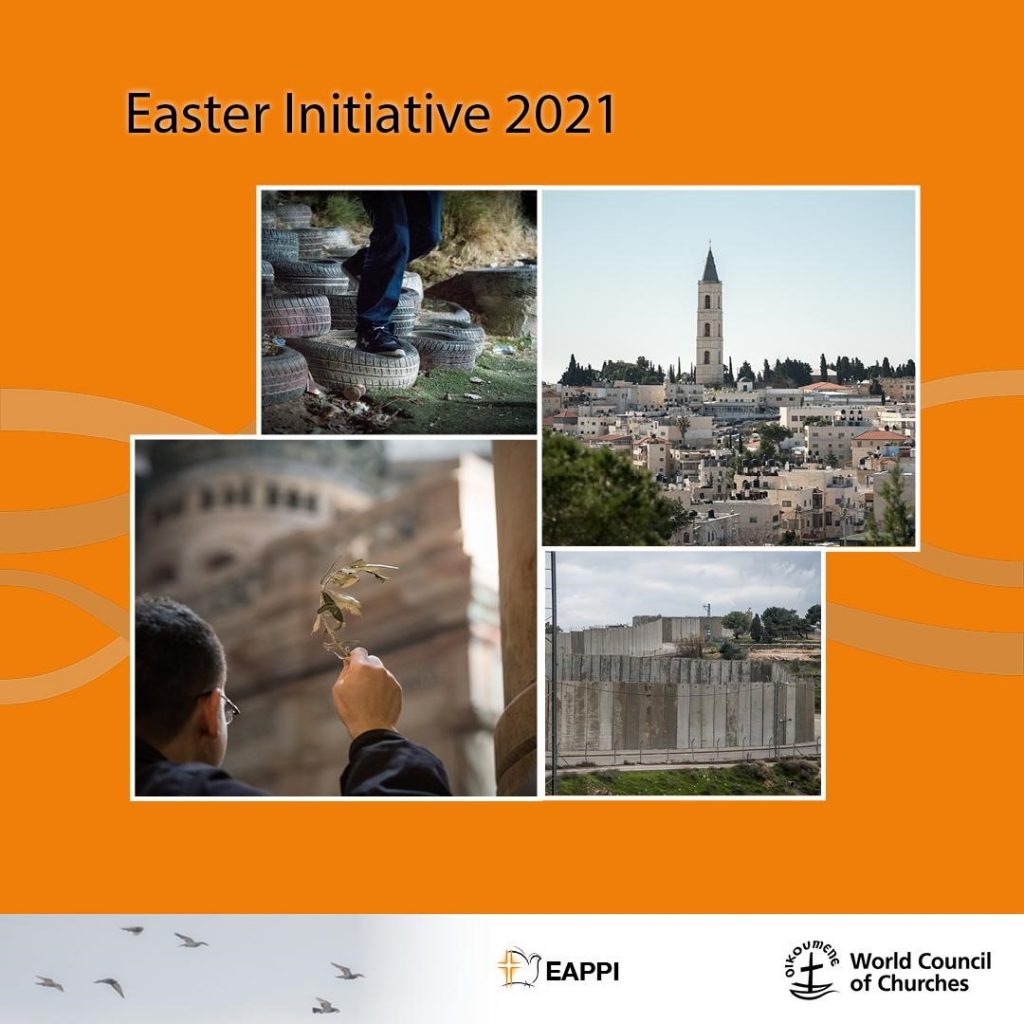WCC-EAPPI Easter initiative to follow the footsteps of Jesus, spotlighting current realities under occupation

Taking stock of a series of geographical sites as described in the Bible as part of Jesus’ life, the initiative will provide opportunities for reflection on what life in those same geographical sites looks like today, both as holy sites treasured by local communities, and in view of the injustices caused by military occupation.
Through biblical reflection, prayer, advocacy engagement, and feature material highlighting present-day experiences in these sites, churches and partners around the world are invited to engage with the different narratives around Easter, also together with their local communities.
“This is truly an ecumenical initiative, beginning with Holy Week for Christians in the Western tradition, and running all the way through the Easter celebrations of our sisters and brothers in the Eastern traditions,” explains WCC acting general secretary Rev. Prof. Dr Ioan Sauca.
The objective is to raise awareness of the current situation in the places referred to in the Easter narrative among a wide constituency of Christians globally, and to promote stronger engagement in the search for a just peace among Israelis and Palestinians in the Holy Land.
The initiative forms one in a range of efforts by the WCC and its partners to encourage and sustain non-violent efforts for just peace for all people in Palestine and Israel.
Pray, learn, advocate – inviting reflection and action on four stations
For 30 March, the WCC is preparing a collection of resource materials to highlight four emblematic sites for the Easter narrative: The road from Jericho to Jerusalem; Bethany; the Mount of Olives; and the Holy Sepulchre.
The resources will include a set of Bible studies – one on each station –, proposals for concrete advocacy efforts to be made by individuals and communities around the globe, as well as feature material consisting of photos, text and video to offer witness to current realities onsite today.
“In all our efforts, we want to provide opportunities for churches and partners around the globe to join hands in fostering hope and bringing peace. The Easter narrative offers us precisely this opportunity, to reflect on the Holy Land as we know it from the Bible and to see the injustices of today, provide accompaniment and offer protective presence to suffering communities, but also to tackle the root causes of such injustice, as we know that occupation continues to profoundly and negatively impact the lives, livelihoods, and human rights of the Palestinian people,” Sauca concludes.
Learn more and engage: Easter initiative 2021

